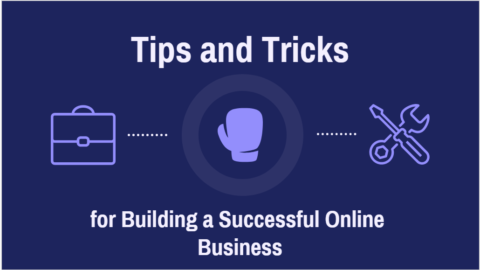Skills in Psychology That Will Help Close More Deals
Sometimes it can feel like it’s luck that makes or breaks a deal. But you can push the odds in your favor more frequently if you’re attuned to the ins and outs of the psychology at play in every sales scenario. Here’s how. Psychology plays a significant role in sales and closing deals. Understanding the principles of human behavior and psychology can help sales professionals build rapport, establish trust, and ultimately close more deals.
Table of Contents
Here are some key psychology skills that can be valuable in sales:
Active Listening:
Effective listening is crucial in sales. It involves not only hearing what the prospect says but also understanding their needs, concerns, and motivations. By actively listening, sales professionals can tailor their pitch to address the prospect’s specific pain points.
Empathy:

Empathy is the ability to understand and share the feelings of others. Salespeople who demonstrate empathy can connect with prospects on a deeper level, showing that they genuinely care about solving the prospect’s problems.
Building rapport is about establishing a positive and authentic connection with prospects. Sales professionals who can build rapport quickly are more likely to gain trust and credibility, making it easier to close deals.
Understanding Motivation:
Psychologists study motivation extensively; salespeople can benefit from understanding what drives their prospects. Knowing whether a prospect is motivated by financial savings, status, security, or other factors can help tailor the sales pitch accordingly.
Psychological principles like the scarcity effect and fear of missing out (FOMO) can be used to create a sense of urgency in prospects. Limited-time offers and highlighting the potential loss can prompt prospects to make quicker decisions.
Body Language Reading:
Being attuned to non-verbal cues can provide insights into a prospect’s feelings and intentions. Understanding body language can help sales professionals gauge interest, discomfort, or hesitation.
Storytelling:
Storytelling is a powerful psychological tool. Salespeople who can craft compelling stories that resonate with prospects are more likely to engage their emotions and persuade them to take action.
How psychology can help in sales?
What is the psychology of closing a deal?
Understanding Human Behavior: Key to Closing More Deals
A fundamental step to excel in sales is understanding human behavior and Skills in Psychology. And it’s psychology that provides us with a manual for unpacking human interactions.
For instance, if we can get to grips with an individual’s preferences or cognitive biases, this gives you an edge as a salesperson, as we’ll discover later.
So how does this translate into more successful deals? Here are some specific ways:
- Identifying Customer Needs: Psychology helps recognize what truly drives your customers’ decisions.
- Influencing Decisions: With behavioral insights, you can effectively guide the buyer’s choices.
- Building Better Rapport: High emotional intelligence aids in bond-forming with clients in less time.
These skills are also useful for anyone considering a role in IO (Industrial-Organizational) psychology. Getting IO psychology career guidance will let you prosper if you head down this path, rather than simply applying such insights to sales.
Using Empathy in Sales Negotiations: Lessons from Skills in Psychology
Empathy, an integral element of psychology, is crucial for turning sales negotiations in your favor. This psychological skill allows you to present solutions that truly resonate with the customer’s needs, essentially making a connection at an emotional level.
Here are some ways empathy can contribute to closing more deals:
- Creating Genuine Understanding: Empathizing doesn’t just mean understanding what clients want but why they want it.
- Forming Trust: When customers feel their needs are genuinely understood, trust naturally builds.
- Producing Personalized Solutions: Reaching into your customer’s world facilitates tailoring products or services accordingly.
By actively practicing empathy during interactions and negotiations, you’ll likely find yourself not only closing deals swiftly but also establishing long-lasting business relationships built on mutual understanding and respect.
Leveraging Cognitive Biases to Your Advantage in Sales
Cognitive biases play a significant role in decision-making processes. As a salesperson, understanding these can be your secret weapon to sway decisions favorably.
Here are few cognitive biases you could harness:
- Anchoring Bias: This bias refers to the tendency people have to rely too heavily on a single piece of information when making a decision. Positioning your product as the primary option can leverage this.
- The Bandwagon Effect: People often do things because others are doing them. If we showcase that our products are popular within their peer group, it might trigger clients’ interest.
- Scarcity Bias: Limited availability or exclusivity creates more desire for commodities.
What all these techniques do is provide shortcuts through the sea of choices your customers face each day, and guide them towards the choice that benefits both parties most effectively.
How Motivational Theories and Skills in Psychology Can Improve Your Success Rate in Closing Deals
Motivation is the driving force behind human behavior. In sales, knowledge from motivational theories within psychology can be instrumental to encourage a purchase.
Draw on these theories for improved deal-making:
- Maslow’s Hierarchy of Needs: Understand what ‘need level’ your product fits into, whether that’s physical, security, social or self esteem, and tailor your pitch accordingly.
- Expectancy Theory: People are motivated when they believe their efforts will lead to success. Demonstrate how choosing your product will achieve desired outcomes.
- Locke’s Goal-Setting Theory: Setting goals has been shown to increase motivation and performance. Help customers set achievable short-term goals that can meet with your product.
Aligning customer motivations with the benefits of your offering lets you tap into intrinsic client desires thus seal the deal naturally.
Final Thoughts on Skills in Psychology for Deal-Making
Some people are innately attuned to the psychology of deal-making. While others need to learn more about human behavior and psychology to thrive in this context. Knowing which camp you fall into will help you on your way.

11+ years strategic communications, marketing, and project management experience. I am a trainer at StarWood Training Institute, focusing on online courses for project management professionals.











